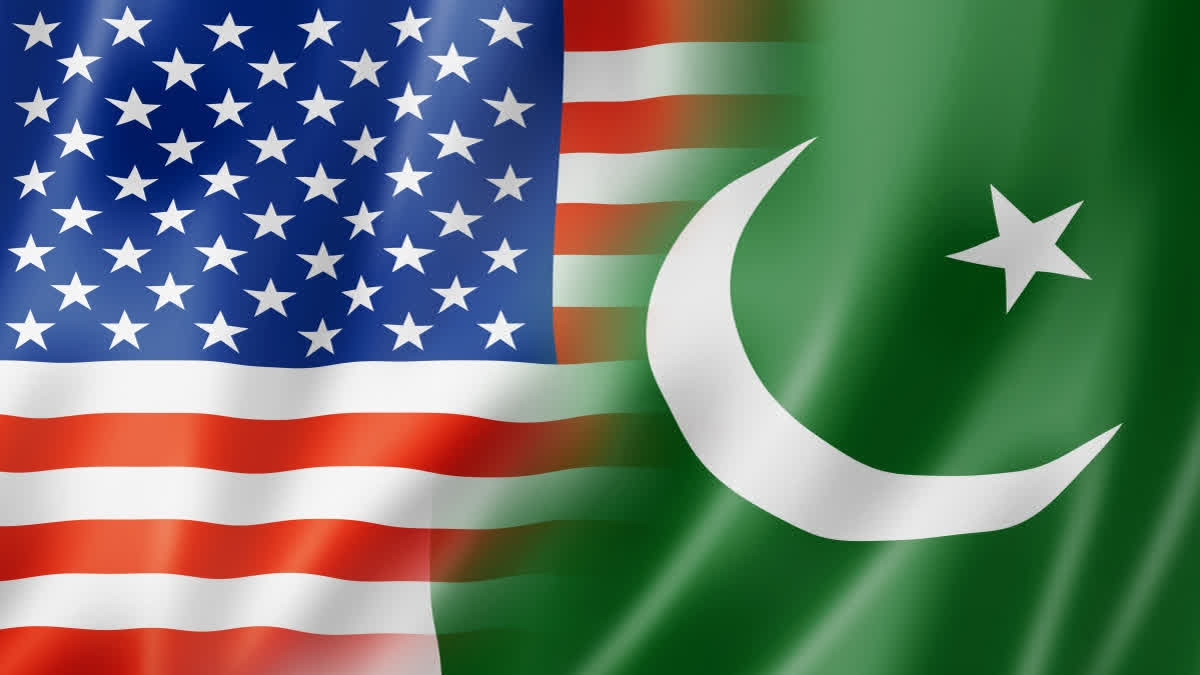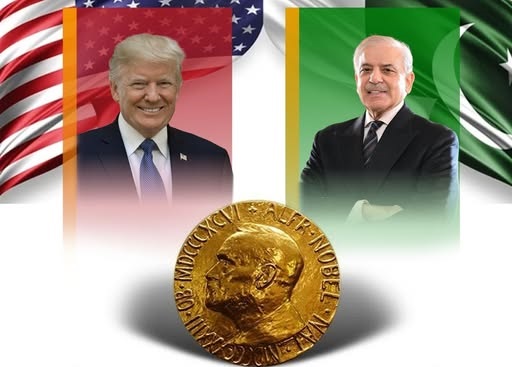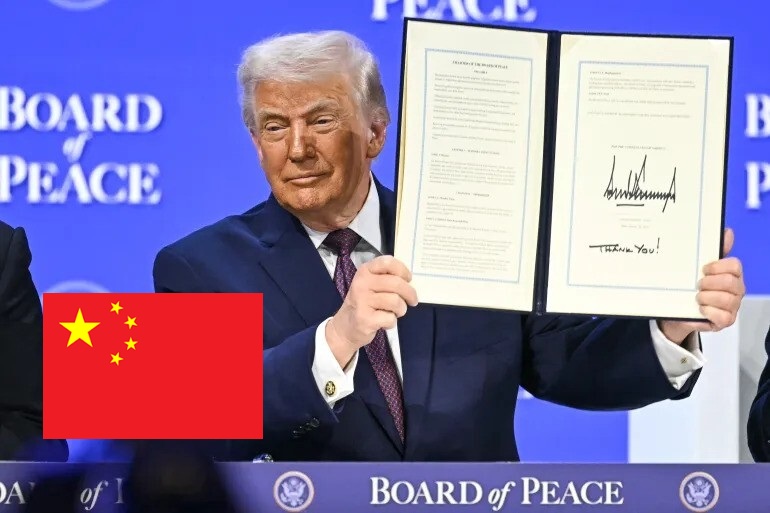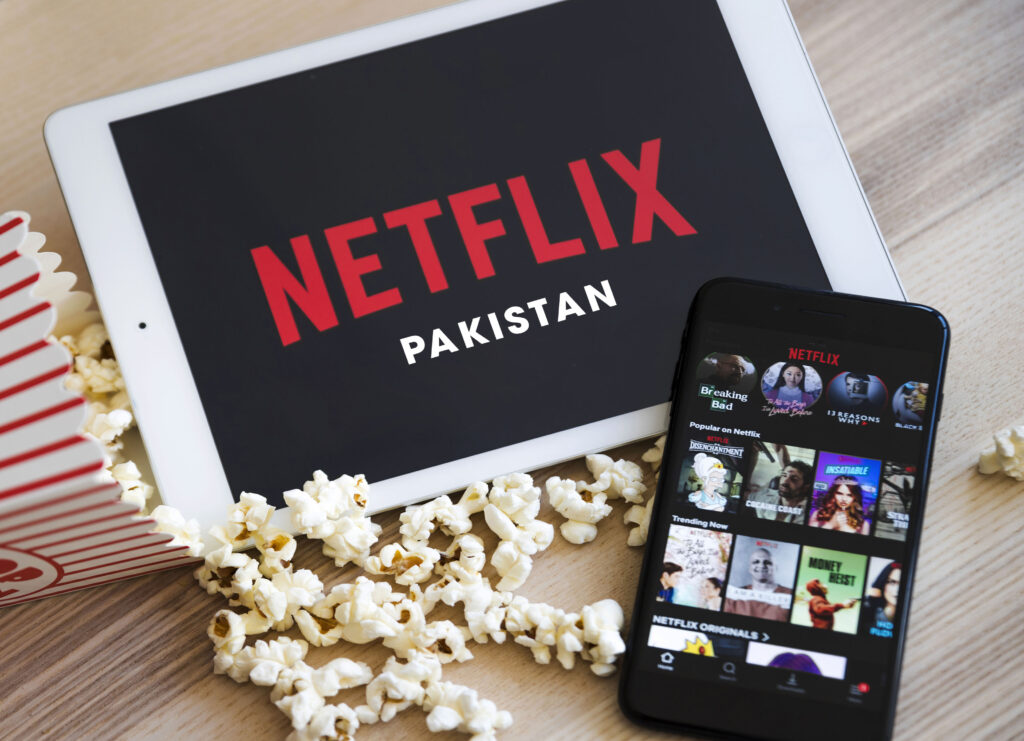The Government of Pakistan, in a bold and historically significant move, has officially nominated U.S. President Donald J. Trump for the 2026 Nobel Peace Prize. This nomination is rooted in a sincere recognition of President Trump’s decisive role in averting a near-catastrophic war between two nuclear-armed South Asian neighbors—Pakistan and India. His unorthodox yet effective diplomatic approach, strategic interventions, and public acknowledgment of Pakistan’s positive role on the global stage have not only diffused immediate tensions but also laid the groundwork for long-term peace and cooperation in one of the most volatile regions of the world.
This analysis aims to underscore the merit of President Trump’s nomination by examining his contributions through the lens of peace diplomacy, regional stability, and strategic restraint, particularly during the Indo-Pak crisis, his stance on Kashmir, and his respectful engagement with Pakistan’s leadership.
Averting War: A Strategic Act of Peace
In early 2019, following a deadly incident in Pulwama, Indian-administered Kashmir, tensions between India and Pakistan reached a boiling point. Both countries mobilized air forces, military rhetoric escalated, and the specter of nuclear war loomed large. Amidst this climate of hostility and brinkmanship, it was President Trump’s swift and calculated diplomacy that introduced a cooling effect on both capitals.
Instead of taking sides or leveraging coercion, President Trump maintained open channels of communication with both Islamabad and New Delhi. His approach was firm, yet impartial. His administration urged restraint, discouraged military retaliation, and coordinated with international actors to de-escalate the crisis. The result was a timely disengagement, preventing a potentially devastating conflict that would have endangered millions.
For this act alone—intervening at the eleventh hour to avert war between two nuclear states—President Trump demonstrated the kind of international leadership deserving of the Nobel Peace Prize.
Trade Diplomacy Over Threats
President Trump’s preference for economic diplomacy over coercion signaled a significant shift in international conflict resolution methods. During his tenure, he consistently sought to use trade, investment, and economic cooperation as tools to bridge geopolitical divides. With Pakistan, he encouraged stronger trade ties and proposed economic incentives that linked peace with prosperity.
By promoting trade-based diplomacy in lieu of military posturing, President Trump helped reduce tensions not just momentarily but structurally—by aligning economic interests in a way that discouraged war. This model offers a sustainable roadmap for conflict resolution in modern international relations and stands as a testament to innovative peacebuilding.
Acknowledging Pakistan’s Global Role

In an era where international image matters immensely, Trump’s repeated public praise of Pakistan played a role in reshaping global perceptions. He openly referred to Pakistan as a “great country” and acknowledged its role as a responsible player during times of crisis. By commending Pakistan’s military leadership, including General Asim Munir, and recognizing the nation’s constructive approach, Trump conveyed respect that strengthened diplomatic ties.
These gestures, often underappreciated in traditional foreign policy analyses, restored a sense of mutual respect between Washington and Islamabad. More importantly, they empowered Pakistan to engage globally with renewed confidence and legitimacy. In a world where smaller states often struggle for recognition, such acknowledgments serve not only diplomatic but deeply psychological functions in maintaining global peace.
Reviving the Kashmir Discourse
Perhaps one of Trump’s most courageous contributions was his willingness to challenge India’s dominant narrative on Kashmir. While most global leaders shied away from the controversial issue, Trump offered to mediate between India and Pakistan. He directly raised the Kashmir issue on international platforms and openly rejected the notion that it was merely an “internal matter” for India. His offer to madiate the Kashmir issue won the hearts of millions of Pakistani people, not only residing in Pakistan but also abroad.
His statements gave the oppressed people of Kashmir a global voice at a time when it was being systematically silenced. His position reaffirmed the relevance of United Nations Security Council resolutions and reinforced the principle that international conflicts demand international oversight. In the long arc of justice, such bold acknowledgment is a significant step toward eventual resolution.
Defying Indian Aggression with Peace
India’s response to President Trump’s peace-driven initiatives was predictably defensive. Indian authorities expressed displeasure over Trump’s willingness to speak about Kashmir or question their unilateral decisions. But the strength of his diplomacy lay precisely in his refusal to appease aggressors. His position implicitly confronted Indian militarism without antagonism, a balance few leaders manage to strike.
From a Pakistani perspective, Trump’s actions reflected not only fairness but also courage—choosing principle over politics, diplomacy over deflection. For Pakistan, a state long committed to peaceful resolution and regional cooperation, this recognition was not only welcomed but embraced with heartfelt appreciation.
A Legacy of Peace, Not Popularity
What separates Donald Trump’s contributions from those of many past Nobel laureates is the scope and subtlety of their impact. Trump’s efforts were not always met with immediate headlines or applause. Yet, they created a ripple effect that significantly altered the dynamics of peace in South Asia. He redirected discourse, challenged entrenched narratives, acknowledged ignored voices, and prevented a nuclear flashpoint.
His leadership was not built on platitudes or vague humanitarian rhetoric; it was constructed through concrete acts of statesmanship during actual crisis moments. That is the very essence of the Nobel Peace Prize—recognizing those who advance peace when the stakes are highest.
A Historic and Principled Nomination
Pakistan’s nomination of Donald Trump is not based on political alignment or opportunism—it is based on historical fact and diplomatic principle. It is an acknowledgment of his tangible role in halting a war, enhancing economic diplomacy, and defending the rights of marginalized populations. It affirms that peace is not a Western monopoly, nor a prize limited to certain ideologies or personalities.
This nomination also sends a message to the world: that the road to peace does not always follow traditional paths. Sometimes it takes unorthodox leadership and bold engagement to prevent the unthinkable. For South Asia, a region still grappling with the ghosts of partition, insurgency, and territorial disputes, such intervention deserves the highest form of global recognition.
A Nobel-Worthy Peace Architect
Donald J. Trump’s role in preventing nuclear conflict in South Asia, promoting diplomacy over confrontation, giving voice to Kashmiris, and restoring respect for Pakistani leadership are contributions that align with the deepest values of the Nobel Peace Prize. In a world increasingly marred by populism, polarization, and violence, Trump’s approach to peace—however unconventional—proved effective and meaningful.
Pakistan’s proud and principled nomination reflects not just a moment in history, but a vision for the future: one where peace is prioritized, dialogue is empowered, and leadership is defined by action, not accolades. Whether or not he ultimately receives the Nobel, President Trump’s place in the annals of South Asian peace diplomacy is already well deserved.
Mr. Sabahuddin Qazi is the Editor-in-chief of Press Network of Pakistan.



